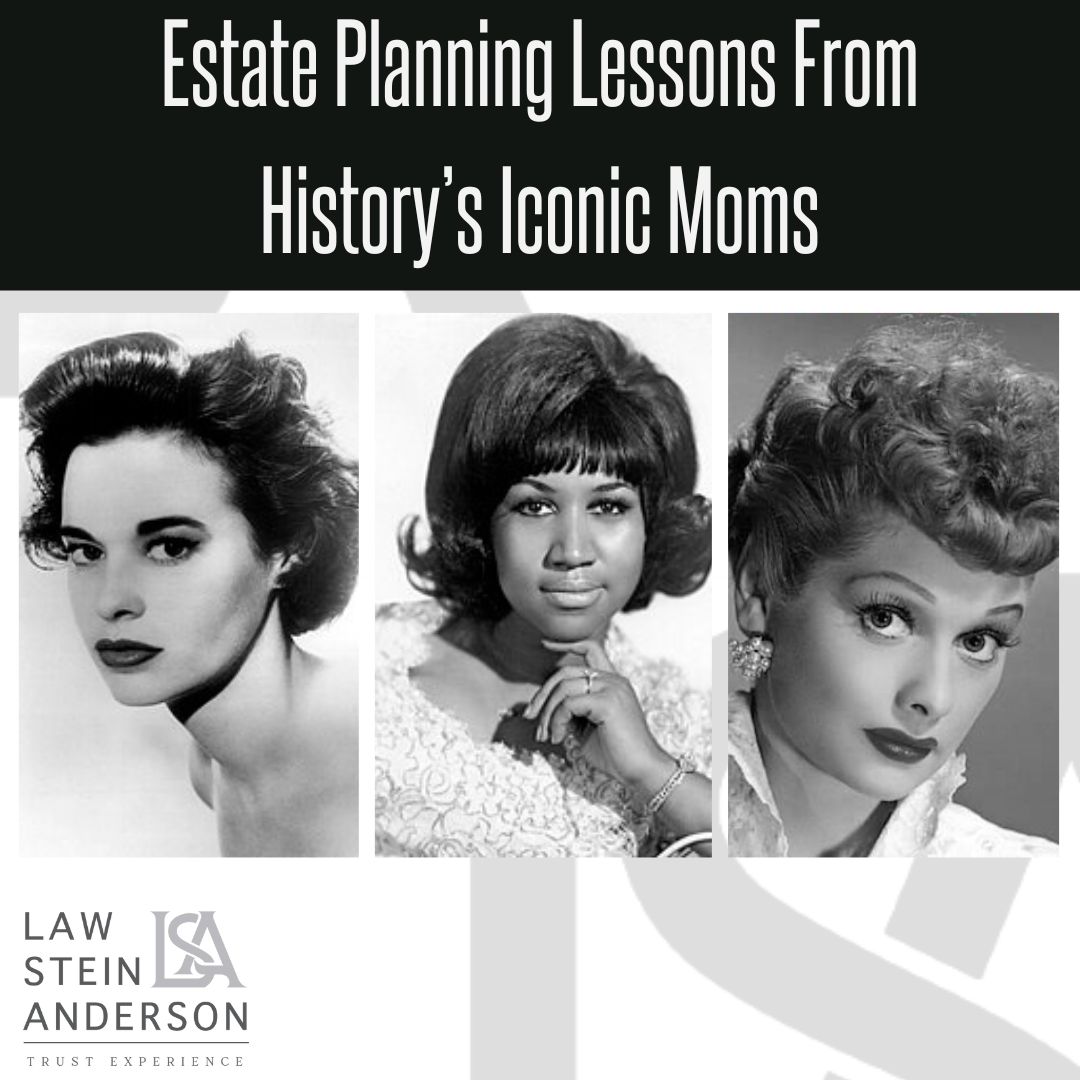Estate Planning Lessons From Famous Moms
Estate planning can be a sensitive subject, but the experiences of iconic figures like Gloria Vanderbilt, Aretha Franklin, and Lucille Ball offer valuable estate planning lessons. This month’s newsletter explores their practices and pitfalls to gain insights into the importance of clear, strategic planning.
Gloria Vanderbilt: No Trust Fund
As baby boomers prepare to pass down the largest wealth transfer in history, Gloria Vanderbilt’s approach to estate planning offers valuable lessons. Despite inheriting a substantial trust fund, Vanderbilt built her own fortune and chose not to create trust funds for her children. Her son, Anderson Cooper, supports this, seeing inherited wealth as a “curse” that undermines motivation.
This perspective mirrors a growing trend among the affluent to ensure their children thrive through their own endeavors. Vanderbilt exemplifies how fostering financial independence can be more advantageous than bequeathing large, unrestricted inheritances. This approach not only preserves family wealth but also cultivates sound financial habits in the next generation.

Aretha Franklin: Too Much Estate Planning
Aretha Franklin’s estate planning saga highlights the importance of precise estate planning. After her death, two handwritten wills surfaced, causing a five-year legal battle among her children. This case illustrates that too little estate planning can lead to costly probate litigation, while unclear planning can create confusion. Key lessons include:
- Ensuring your loved ones know where to find your estate documents.
- Maintaining only one version of each document.
- Avoiding handwritten wills.
Clear, professionally prepared estate plans minimize burdens on your heirs and secure your legacy. This situation exemplifies the importance of regularly updating your estate plan to reflect any life changes and prevent unintended consequences for your loved ones.
Lucille Ball: Dangers of Being the First to Die
Lucille Ball’s estate planning offers valuable lessons, especially regarding remarriage and inheritance. After she died in 1989, her estate was divided among her two children and her second husband, Gary Morton. However, when Morton remarried, his new wife, Susie McAllister, auctioned off many of Ball’s items, leading to a legal battle with Ball’s daughter, Lucie Arnaz. The dispute arose because Lucie never claimed the items left to her by Ball, causing them to pass to Morton and then to McAllister. This situation highlights the importance of promptly claiming inheritances and communicating estate intentions to all loved ones. Those planning their estates should carefully consider the implications of remarrying.
We Can Help You Plan Strategically
Whether fostering the financial independence of your heirs, ensuring precise documentation, or navigating the complexities of remarriage, Law Stein Anderson understands that every family’s situation is unique. We are here to help you create a tailored estate plan that respects your wishes. Don’t leave your legacy to chance. Contact Law Stein Anderson today to ensure your estate plan is comprehensive, up-to-date, and aligned with your goals.
